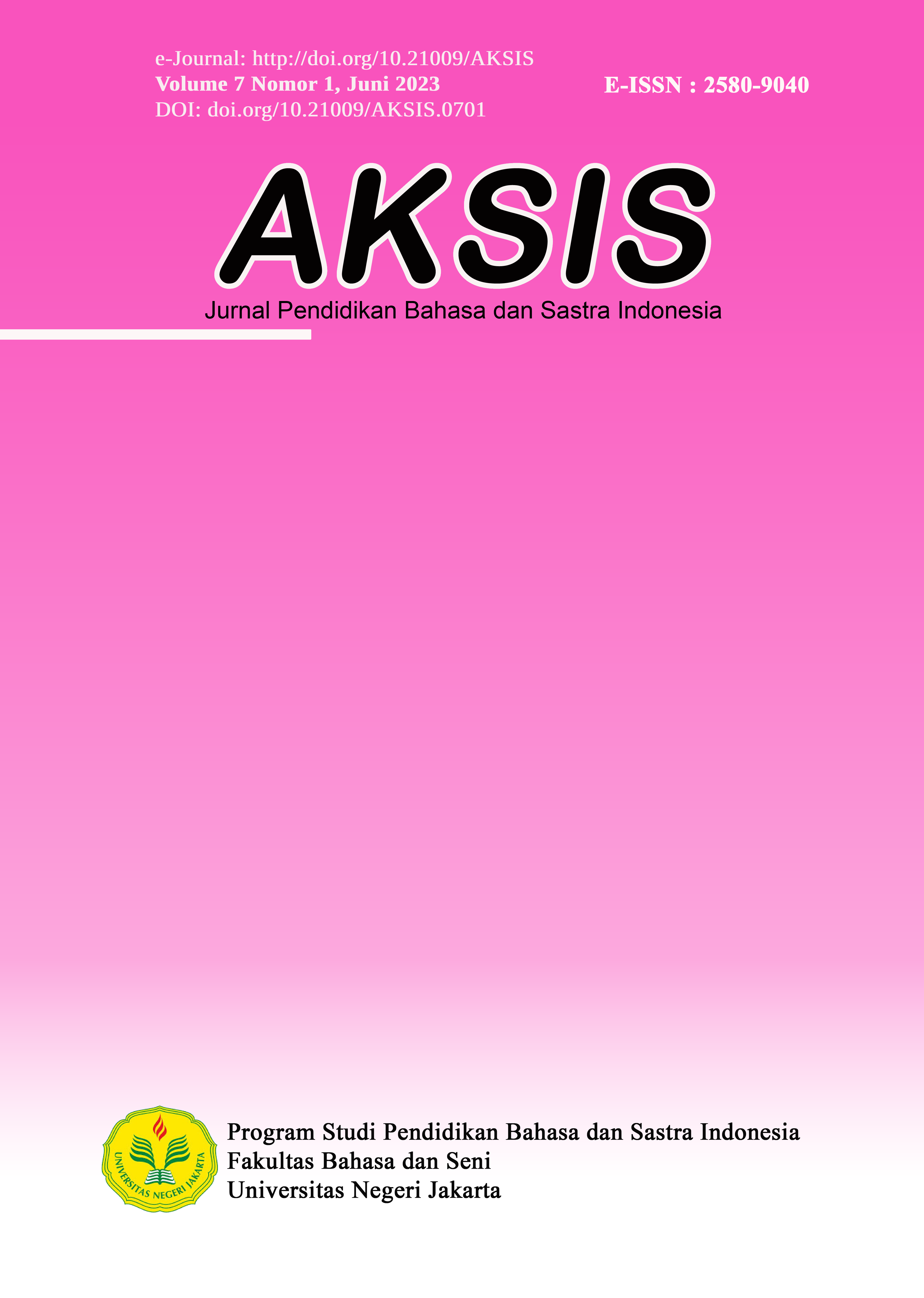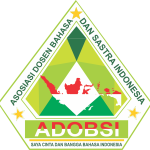A Phenomenological Study of The Implementation of Indonesian Language Learning During the Covid-19 Pandemic
DOI:
https://doi.org/10.21009/AKSIS.070108Kata Kunci:
phenomenology, courageous learning, covid-19Abstrak
This research was motivated by a number of phenomena that occurred in the implementation of online learning at SMP Negeri 3 Pelalawan, Pelalawan Regency. This study uses a qualitative approach with phenomenological methods. Based on the results of the analysis and discussion, it is concluded that the obstacles that occur in the implementation of learning Indonesian are as follows: first, the network is less stable; second, the learning atmosphere is not comfortable because many friends are noisy because the network is not good; third, learning videos are intermittent; fourth, in providing material via whatsapp so that it does not include learning objectives, students do not understand the previous material; fifth, students are late to enter the zoom application because they have to find a network to the forest or the pier. In addition, there are students who do not have cellphones, so they have to wait for their parents to come home from work before they can communicate with the teacher; and Sixth, the internet quota that runs out during the closing learning implementation, if the electricity goes out, the internet network will disappear.
Referensi
Aqib, Z. (2013). Model-Model, Media, dan Strategi Pembelajaran Kontekstual (Inovatif). Yrama Widya.
Astuti, E. R. P., & Baysha, M. H. (2021). Analisis Keunggulan dan Kelemahan Pembelajaran Daring di Program Studi Teknologi Pendidikan Universitas Pendidikan Mandalika. Jurnal Lentera Pendidikan Indonesia., 2(3), 123–131.
Fatmawati, F., & Andriyani, N. (2021). Digital Literacy: Teachers’ Perceptions of Using Google Accounts in the Online Learning Process. AL-ISHLAH: Jurnal Pendidikan, 13(2), 1017–1026.
Hastuti, D., & Fatmawati. (2022). Pembelajaran Bahasa Indonesia Berbasis Web (E-Learning); Kajian Fenomenologi. 8(2), 586–592.
Huzaimah, & Amelia. (2021). “Hambatan yang Dialami Siswa dalam Pembelajaran Daring Matematika pada Masa Pandemi Covid-19.” Jurnal Cendekia: Jurnal Pendidikan Matematika, 5(1), 535–536.
Irianto, & Subandi. (2016). “Studi Fenomenologis Kebahagiaan Guru Di Papua.” Gadjah Mada Journal of Psychology, 1(3), 140–166.
Kuswarno, E. (2009). Fenomenologi. Widya Padjadjaran.
Mona, H., & Widodo, A. (2022). Berbagai Kendala dalam Pembelajaran Daring Selama Pandemi Covid-19. Elementary Journal, 5(1).
Putri, E. S., & Fatmawati. (2022). Pembelajaran Bahasa Indonesia Pada Masa Pandemi Covid-19 (Studi Fenomenologi). Jurnal Onoma: Pendidikan, Bahasa, Dan Sastra, 8(2), 557–585.
Septia, S., & Idrus, Y. (2019). “Hambatan-hambatan Belajar yang Mempengaruhi Hasil Belajar Mahasiswa dalam Pembelajaran Mata Kuliah Dasar Desain Jurusan IKK FPP UNP.” Jurnal Seni Rupa, 8(1), 124.
Sudarsana, I. K. (2020). Covid-19: Perspektif Pendidikan. Yayasan Kita Menulis.
Valensiana, M., & Zuhro, L. (2020). Implementasi Pembelajaran Daring di Sekolah Dasar Islam Dalam Masa Pandemi Covid-19. Jurnal DIDIKA: Wahana Ilmiah Pendidikan Dasar, 6(2).






